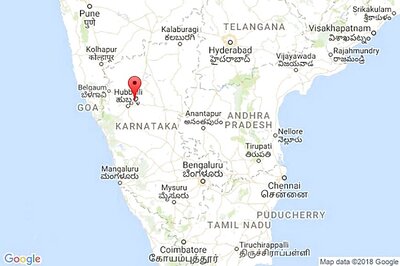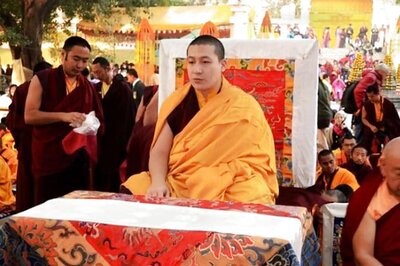
views
The Gujarat High Court has asked the state government if it has any objection to quashing of an FIR against the husband, in-laws of a woman and others filed under an amended anti-conversion law when the wife of the main accused has said forcible interfaith marriage allegations levelled in the FIR were not true. Justice Ilesh J Vora on Wednesday asked the government to file an affidavit if it seeks to oppose the quashing of the FIR in the case, the first under the law, even after the wife of the accused has said a petty domestic dispute in the family, which led her to file a complaint against her husband and in-laws, has been amicably resolved.
The petitioner wife has sought that the FIR be quashed as the angle of forcible conversion by marriage was added to the FIR filed by her against her husband and in-laws by “certain religiopolitical groups” looking to “communalise” the issue. She said her complaint before the Gotri police in Vadodara was nothing more than the issue of “petty and trivial domestic matrimonial issue.” The court granted time to the government to verify the claims related to the settlement of the matter between the complainant and the accused and kept the matter for further hearing on September 20.
The wife of the accused had approached the HC along with her husband, in-laws and the priest who solemnised the marriage, all (numbering 8) seeking quashing of the first FIR lodged in Vadodara under the Gujarat Freedom of Religion Act 2021, two days later it was amended and notified on June 15. Apart from various sections of the amended – the accused were also charged under various sections of the IPC and the Scheduled Caste and Scheduled Tribe (Prevention of Atrocities) Act after their arrest. The Act lays down stringent punishment for forcible conversion through marriage.
The wife of the accused, on whose complaint the FIR was lodged, told the HC in her affidavit that the FIR against her husband, in-laws and others was an “incorrect, untrue and exaggerated version of the information given by the informant which arose out of a petty and trivial domestic matrimonial dispute.” The petitioners, led by the wife of the accused, said since the dispute has been resolved between the parties, they have jointly approached the court for quashing the FIR.In their plea, the petitioners claimed that the alleged offences are “constitutionally and legally untenable.” They said most of the accused are under arrest and their bail pleas have also been rejected.
The wife of the accused husband said the petition was filed on the basis of her affidavit that the dispute between them has been resolved. The woman said she had approached the police with a complaint against her husband over a trivial matrimonial issue that was to be covered under section 498A (husband or relative of husband of a woman subjecting her to cruelty) of the IPC.
“However, at this stage, certain religiopolitical groups intervened in the matter and communalised the said issue bringing the angle of ‘love jihad.’ Also, on account of the over-zealousness of the police officers involved, facts and offences which were never mentioned or alleged by the informant came to be inserted in the FIR,” said the petition.”Although the informant (the woman) did not complain/inform if the offences were alleged under IPC, Freedom of Religion Act and Atrocities Act (the woman is a Dalit), the same has been incorporated in the FIR as if the informant complained/ informed about the same,” it stated.
The petition accused the police of showing communal bias in the entire episode.”The entire action of the police is communally biased,” stated the petition, citing that the father of the wife of the accused husband was not arraigned as accused.
The wife of the accused as well as her mother filed an affidavit stating that no offence as alleged in the FIR has been committed by the accused, it said.”Therefore, if they are not enlarged on bail, it would result in derailment of the matrimonial relationship between the informant and the accused husband,” she stated in the affidavit.
The petitioner wife and her future husband came to know each other in 2019 and got into a relationship, after which they married as per the Special Marriage Act, 1954, and their family members knew each other and their religion, social status, they stated in the plea before the HC. They then got married as per Islamic rituals on February 16, 2021, and executed a joint affidavit declaring the facts, and got their marriage registered under the Special Marriage Act.
Subsequently, over some petty matrimonial issues between the husband and the wife, the woman left his house and went to her parental house.
.
Read all the Latest News, Breaking News and Assembly Elections Live Updates here.




















Comments
0 comment